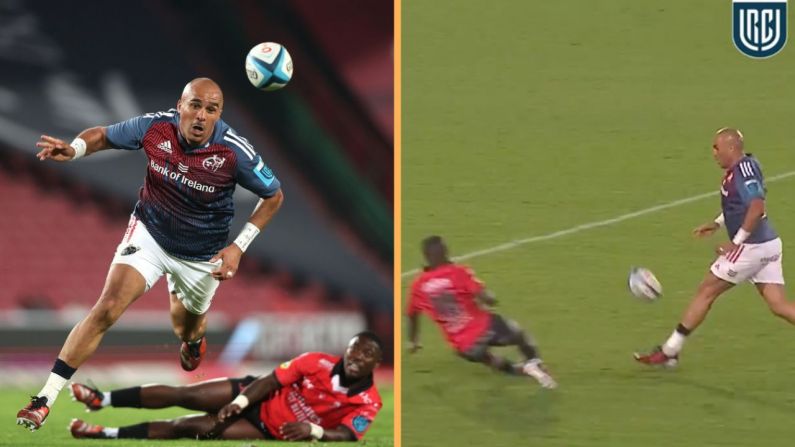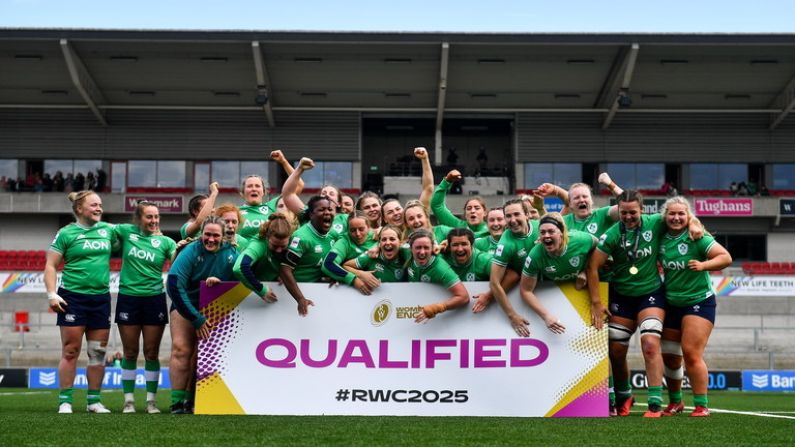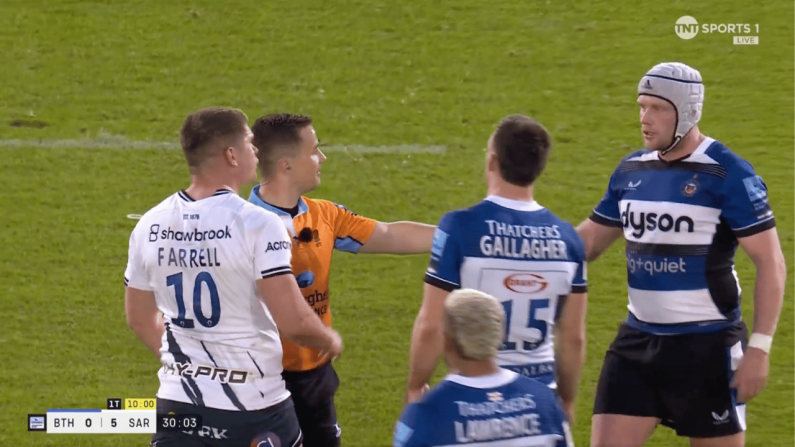World Rugby's newly announced plans for two separate Nations Championship competitions have not exactly gone down a treat with fans.
In the buildup to Saturday's World Cup final between New Zealand and South Africa, World Rugby confirmed that the most significant revamp to the calendar of both the men's and women's games in years, with the introduction of a new Nations Championship system to formulate competition in the years between World Cups.
The new format will see the teams of the Six Nations and Rugby Championship (plus two as of yet undetermined nations) compete in a bi-annual UEFA Nations League-esque tournament from 2026 onwards. A second division of a further 12 teams will also compete
World Rugby's press release on the invention of the competition says the move is in order to, "provide crucial opportunities (and certainty of fixtures) for unions currently outside of the existing annual competitions, and in turn provide opportunities for unions and regional associations through to the second division."
The plans were presented under the guise of improving competitiveness and access for rugby's so called "tier two nations" - but many fans are doubtful as to whether there are any signs that that is the case.
READ HERE: Tom Curry Racism Allegation: World Rugby Reportedly Investigating Off The Ball Incident
READ HERE: New Footage Shows Reason for Altercation After Full Time in England v South Africa
World Rugby announce Nations Championship as part of calendar reforms
The World Rugby Council has approved transformational reform of the global men’s and women’s rugby calendars
Including the first-ever dedicated women’s and men’s calendars from 2026 and expansion of Rugby World Cup to 24 teams in 2027
To find out more: https://t.co/iQln1BcIid— World Rugby (@WorldRugby) October 24, 2023
For a start, the plans for separate tier one and tier two Nations Championship competitions from World Rugby confirm that there will strangely be no relegation or promotion in place until the third iteration of the competition in 2030, by which time nearly two more full World Cup cycles will have passed by.
This means that, for the tier one nations, this is merely another chance to flex their muscles against each other, while the tier two competitors are almost guaranteed to go the best part of a decade before they get the chance to regularly face stronger opposition - a crucial challenge they have been crying out for in recent years.
READ HERE: 2000s Pop Icon To Perform Anthems At Rugby World Cup Final
On top of this, a parallel Pacific competition was announced on Tuesday, involving the Pacific Island Nations, Japan, the United States, and Canada. Fiji, Tonga, and Samoa will face off in one pool, with the North American teams facing Japan in the other. Semi-finals and a 5th/6th place play-off will spin off from these pools.
The existence of two separate competitions has led some to question who the additional two teams in the 'tier one' Nations League will be, given Fiji and Japan would be the obvious contenders. The "Pacific Nations Cup" seems to only further separate the Six Nations and SANZAR countries from the rest of world rugby.
As a final caveat, the plans were only narrowly voted in, with the vast majority of those World Rugby Council members voting in favour hailing from tier one nations - Argentina were understood to be the only Six Nations/SANZAR country to express vehement opposition to the plans.
Rugby's Nations Championship plans come after a World Cup which showed that tier two nations have the potential to rise to higher levels if given the opportunity by World Rugby. For example, a first ever World Cup victory for Portugal came against Fiji - a side who themselves knocked out the giants of Australia to reach the quarter-finals.
Many fans feel that the latest move from World Rugby marks a step back, rather than a step forward, for the overall competitiveness of the sport.
World Rugby chairman Bill Beaumont tweeted to share his delight at the announcement on Tuesday. Beaumont said:
I would like to thank my Council colleagues for their passion, dedication and support. A historic moment for the sport that provides certainty and opportunity for all.
Rugby's traditional tier two nations may beg to differ with Beaumont's assertion of improved "opportunity" - a point many made under different guises on social media in response.
READ HERE: Jean Kleyn Was Surprised By Irish Media Reaction To His South Africa Switch
Love this move Bill my chum. This sport is for the elite gentlemen of our society and you and your coileagues have shown the bravery to keep it that way ❤️
— Will Owen (@will_owen9) October 24, 2023
I'm not sure your understanding of "opportunity for all" is the same as *checks notes* the rest of the world.
— Scottish Rugby Blog 🏴 (@ScotRugbyBlog) October 24, 2023
Thank you for reminding me there’s only 12 nations in rugby, I had a really weird dream about some kind of mad tournament where there were loads more.
— Squidge Rugby (@SquidgeRugby) October 24, 2023
Nothing historic about this! You had a chance to grow rugby globally after a massively successful #RWC2023 for T2 nations but instead shut them out for an elitist competition where the rich get richer. Apologies to all the T2 nations who are striving to grow the game 🏴
— Lee Llewellyn (@leellew40) October 24, 2023
You should be embarrassed by the poisonous legacy of inequality you have left.
— SPK (@spkeene) October 24, 2023
Opportunity for all or opportunity for 12 teams Bill.
— TheWelshDragon 🏴🐉 (@TheWelshDragon9) October 24, 2023
Alongside the plans for a Nations Championship, World Rugby confirmed a major change for the 2027 Rugby World Cup in Australia.
The next edition of the World Cup will feature an additional four teams, and follow roughly the same format as that currently used in soccer's European Championship.
Six groups of four will see the pool winners and runners-up progress to a newly-introduced last 16 round, with the tournament window also condensed down from its current seven-week window to a more compact six weeks.













